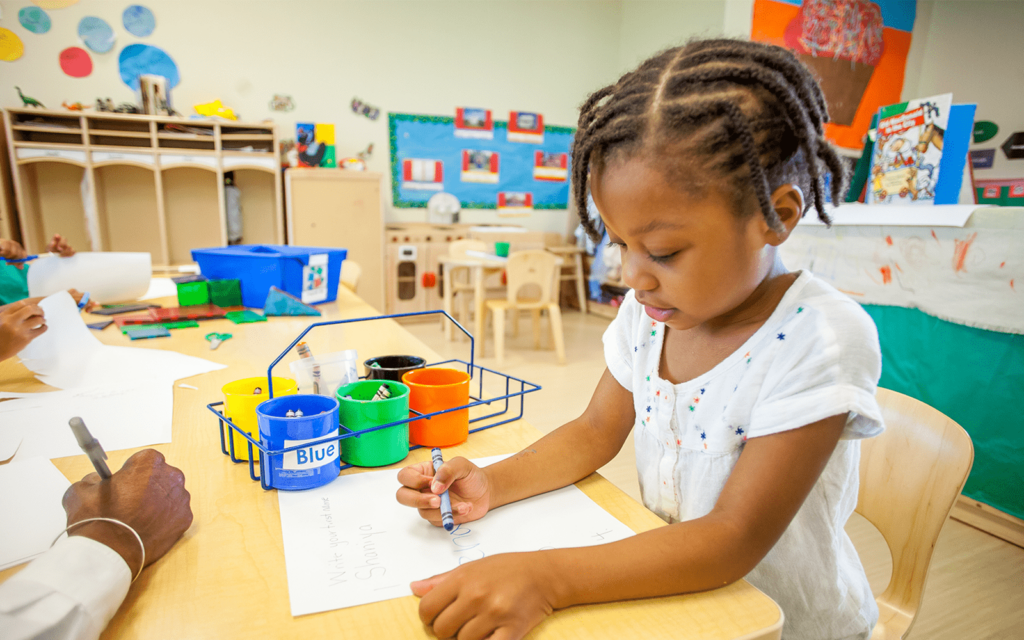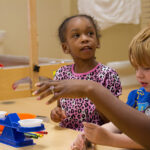In today’s digital age, children are exposed to the online world at an increasingly young age. While the internet offers numerous educational and entertainment opportunities, it also presents potential risks that daycare providers and parents must address. Maintaining online safety in daycare environments is crucial for protecting children’s well-being and ensuring a secure digital experience. This article will explore the importance of online safety, the risks involved, and strategies for creating a safe online environment for children in daycares in colorado springs.
Understanding the Risks
Exposure to Inappropriate Content
One of the primary concerns in daycare environments is the risk of children accessing inappropriate or harmful content online. This includes exposure to violence, profanity, sexual content, and other materials unsuitable for young audiences. Daycare providers must be vigilant in monitoring children’s online activities and implementing measures to restrict access to such content.
Cyberbullying
Cyberbullying, which involves the use of digital technologies to harass, threaten, or embarrass others, is another significant risk in online environments. Children in daycare settings may be vulnerable to cyberbullying, either as victims or perpetrators. Daycare providers should educate children about the consequences of cyberbullying and foster a culture of kindness and respect in both online and offline interactions.
Contact with Strangers
The anonymity of the internet makes it easier for children to interact with strangers online. This poses a risk of children being exposed to predatory behavior or engaging in inappropriate conversations. Daycare providers should teach children about the importance of not sharing personal information with strangers and encourage them to report any suspicious or concerning interactions.
Implementing Safety Measures
Parental Controls
Parental controls are essential tools for managing children’s online activities. These controls allow daycare providers and parents to restrict access to certain websites, limit screen time, and monitor online behavior. By setting up parental controls on all devices used by children in the best daycares in colorado springs, providers can create a safer online environment.
Device Management
Effective device management is crucial for maintaining online safety in daycare environments. Daycare providers should ensure that all devices used by children are equipped with parental controls and that children are supervised while using these devices. Regular updates and maintenance of devices can also help mitigate potential security risks.
Web Filtering
Web filtering is another important tool for restricting access to inappropriate content. By using web filters that block access to websites containing harmful or explicit material, daycare providers can significantly reduce the risk of children encountering such content. Regular updates to web filters are necessary to keep up with the constantly evolving online landscape.
Educating Children on Online Safety
Teaching Digital Literacy
Educating children about digital literacy is crucial for helping them navigate the online world safely and responsibly. Daycare providers should teach children about the potential risks of the internet, how to identify and avoid harmful content, and the importance of protecting their personal information. Role-playing scenarios can help children practice appropriate responses to online situations.
Promoting Healthy Screen Time Habits
While the internet offers many educational and entertainment opportunities, it is important to establish healthy screen time habits for children in daycare settings. Daycare providers should encourage a balance between online activities and offline play, ensuring that children do not spend excessive amounts of time in front of screens. Setting limits on daily screen time and encouraging physical activity and social interaction can help promote a well-rounded and healthy lifestyle.
The Role of Caregivers and Educators
Training for Staff
Daycare providers should ensure that all staff members are trained in online safety protocols and digital literacy. This training should cover the potential risks of the internet, the use of parental controls and web filters, and strategies for monitoring and responding to online safety concerns. Regular updates and refresher courses can help staff stay informed about the latest trends and best practices in online safety.
Creating a Supportive Environment
Daycares in Colorado should create a supportive environment where children feel comfortable discussing their online experiences and any concerns they may have. This involves fostering a culture of trust, respect, and open communication. By creating a safe space for children to share their thoughts and feelings, daycare providers can help identify and address potential issues before they escalate.
Regular Updates and Workshops
Daycare providers should offer regular updates and workshops for parents on online safety topics. These sessions can cover the latest trends in digital technology, the potential risks children may face online, and strategies for monitoring and restricting online activities at home. By providing parents with the knowledge and tools they need to keep their children safe online, daycare providers can help reinforce the importance of online safety and promote a shared responsibility for children’s well-being.
Conclusion
Online safety in daycare environments is a critical issue that requires a multifaceted approach involving daycare providers, children, and parents. By understanding the potential risks, implementing safety measures, educating children on online safety, and collaborating with parents, daycare providers can create a safe and secure online environment that allows children to explore the digital world while minimizing potential harm.
Also Read: Why Finding the Right Daycare is Important for Your Child



